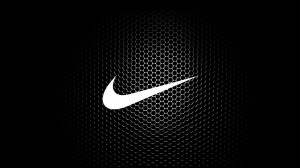 Nike is one of the world’s largest suppliers of athletic shoes and apparel and a major manufacturer of sports equipment. The brand alone is valued at $10.7 billion, making it the most valuable brand among sports businesses in 2012. Nike is also a component of Dow Jones Industrial Average stock index and has recently hit a record high of $80. The more impressive is that its stock increased this year by 51%, which is more than double the rate of the Dow index.
Nike is one of the world’s largest suppliers of athletic shoes and apparel and a major manufacturer of sports equipment. The brand alone is valued at $10.7 billion, making it the most valuable brand among sports businesses in 2012. Nike is also a component of Dow Jones Industrial Average stock index and has recently hit a record high of $80. The more impressive is that its stock increased this year by 51%, which is more than double the rate of the Dow index.
With ten days to go before the beginning of 2014, the question is the following. If NIKE is already part of your portfolio, should it still be for the next year as well? Or, if NIKE is not part of your current list of assets, should it be for next year? In my opinion, the answer is YES on both questions and I will explain why in the next paragraphs.
Back in September, Nike shares surged from $70.30 to $73.60$ on stronger-than-expected third quarter earnings, The company reported Q3 earnings of $0.86 per share, above consensus estimates for EPS of $0.78. Revenues were also slightly better than expected in Q3 at $6.97 billion, versus the $6.96 billion consensus estimate. Global futures orders after currency adjustments were up 10% in Q3. Analysts were looking for a 7.7% increase. North American futures orders rose 12%, beating the consensus 10.4% estimate. Likewise, China futures orders ex-currency were up 2%, beating estimates for a 0.5% advance.
On Thursday, Nike was expected to release its fiscal second-quarter earnings as the analysts were expecting earnings as promising as those from September. Cowen & Co. analyst Faye Landes, who rates Nike outperform, said her survey shows the swoosh brand’s momentum remains “at elevated levels,” and looks to remain “a favorite by a wide margin.”
“NKE’s cool factor is highest among adults 18-24, and significantly higher among non-whites than whites, both boding extremely well for NKE long-term,” she said. “Despite its terrific top line track record in recent years, Nike still has many opportunities to grow its top line.” Given this momentum building in, sales were expected to rise to $6.44 billion from $5.96 billion a year earlier, according to FactSet. In this regard, Nike missed the expectations and sales rose to $6.43 billion, $0.01 shy of the market consensus.
Citigroup analyst Kate McShane said the company would have to report about a 9% increase of its orders of shoes and clothing for delivery the next five months and demonstrate continued strength in North America and improvement in China and Europe, both of which had been lagging markets. For that matter, Nike didn’t disappoint and posted an increase by 12% to $10.4 billion in orders of shoes and clothing for delivery between December and April.
Citigroup analyst Kate McShane said she’s also looking for the company to “slightly” improve its guidance for the year and she expects Nike to report per-share profit of 61 cents a share, above the 58-cent consensus estimate. “Nike continues to fire on all cylinders, and we see strong momentum behind the brand,” said McShane, who rates the stock a buy. On that point, Nike couldn’t match McShane’s expectations, but managed to beat the market’s. The Oregon based company reported per-share profit of 59 cents with a fiscal second-quarter profit of $537 million from $384 million a year earlier.
To wrap up the earnings report, the company topped Wall Street earnings estimates by a penny but didn’t quite make the consensus revenue estimate. In after hours trading Nike shares were little changed, fluctuating between gains and losses. Friday, Nike closed the day on red, falling to $77.30 a share. Another aspect worth mentioning is that Nike it’s increasing its quarterly dividend by 14% to 24 cents a share, up from 21 cents a share. The dividend is payable on January 6, 2014, to shareholders of record at the close of business on December 16, 2013. This is the twelfth year in a row the component of the Dow Jones Industrial Average increased its annual dividend.
Heading into 2014, Nike showed this year a remarkable consistence in its quarterly earnings reports, having managed to beat market expectations or at least being in line with them. As a consequence, the analysts are confident about Nike’s growth potential and still rate it as a buy. So, these positive expectations create a sort of a momentum which will contribute to Nike’s next year performance.
A 12% increase in orders of shoes and clothing for delivery the next five months demonstrates Nike continues to grow and demand is solid and as a reward for its stockholders, Nike increased its annual dividend as it has done it for the last 12 years. An important event for Nike’s business is the FIFA World Cup, which takes place next year in June. This is translated in better sales figures, but don’t forget about spending acceleration which will also show its face.
A final reason for the buying case is the macroeconomic context. After FED decided to begin its tapering process and reduce the monetary stimulus from $85 billion to $75 billion per month starting from January, the markets saw the full part of the glass, meaning that the American economy is strong, and skyrocketed to new record levels. This situation tells me that the bulls are in charge and for the time being, 2014 could also be a year when we will witness a bull market. As a conclusion, for the reasons mentioned above, Nike is a strongly buy for the medium-long term oriented investor for a timeframe of 6 to 12 months.
Is Nike Still A Buy In 2014? by Alin Rauta

